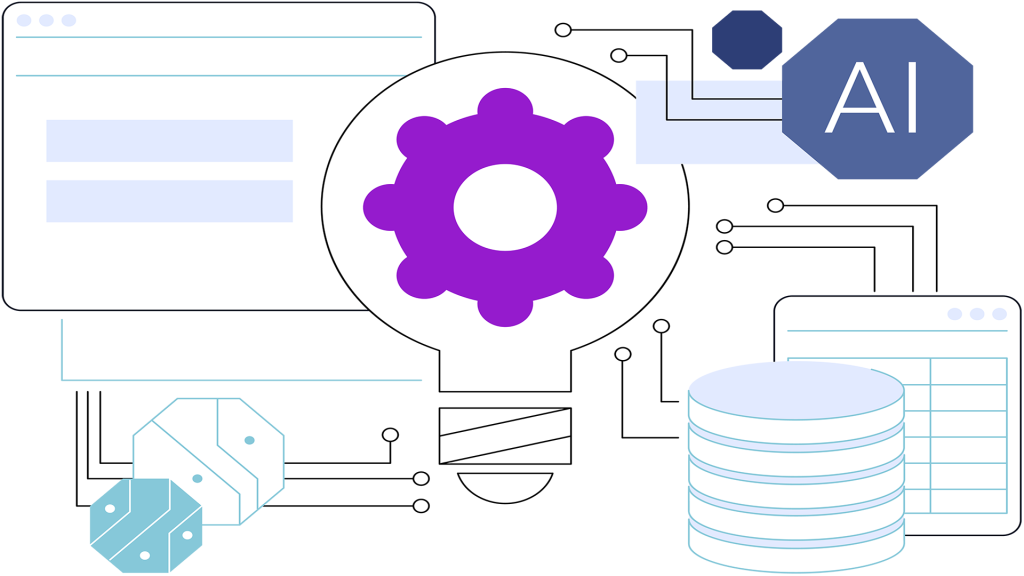
Over the past two decades, I have worked closely with nonprofit leaders facing the rapid pace of technological change. Of all the innovations I’ve witnessed, artificial intelligence (AI) is perhaps the most disruptive force yet. Far from just another tool, AI acts as a force multiplier, capable of transforming donor engagement, operational processes, and program delivery. Yet, despite its potential, many organizations hesitate, concerned about ethics, feasibility, and sustainability.
This hesitation is understandable. AI can be complex, and it demands careful consideration of issues like data privacy and transparency. However, embracing AI has become a strategic imperative rather than a choice. Donors, funders, and beneficiaries increasingly expect data-driven, personalized interactions, making AI adoption crucial for organizations seeking to remain relevant and effective.
The question is not whether AI can enhance nonprofit work; it clearly can, but rather how to do so in a way that preserves the human-centered mission of the sector. This article explores AI’s transformative impact on fundraising, donor engagement, program management, and organizational well-being while also addressing ethical considerations essential to responsible AI adoption.
The Growing Role of AI in Nonprofits
AI is reshaping nearly every aspect of nonprofit operations, from back-end processes to public-facing activities. By automating repetitive tasks, surfacing predictive insights, and personalizing outreach, AI enables nonprofits to maximize limited resources while scaling their impact.
Key areas where AI is driving transformation include:
- Fundraising and Donor Engagement
- Program Delivery and Impact Measurement
- Operational Efficiency and Cost Reduction
- Data Analysis and Predictive Modeling
- Volunteer and Staff Support
- AI-Driven Social Media and Public Relations
Each of these domains demonstrates a crucial point: AI should complement, rather than replace, human empathy and compassion at the core of nonprofit work. When carefully aligned with mission-driven values, AI becomes an enabling technology that streamlines operations and amplifies impact by helping organizations connect more deeply with those they serve.
To better illustrate how AI elevates human-centered missions, let’s examine two domains where nonprofits can especially benefit from AI’s capabilities: advocacy and policy influence and staff and volunteer well-being. These areas highlight AI’s potential to magnify a nonprofit’s reach and effectiveness, whether by mobilizing public opinion for systemic change or by ensuring the people behind the mission receive the support they need to thrive.
AI in Nonprofit Advocacy and Policy Influence
Nonprofits engaged in advocacy often face resource constraints, making it difficult to respond effectively to evolving policy landscapes. AI can be a game-changer here, amplifying an organization’s ability to shape public discourse and policy outcomes.
- AI-Powered Sentiment Analysis
- Predictive Policy Analysis
- Automated Legislative Monitoring
- AI for Community Mobilization
As AI empowers nonprofits to shape policy more effectively, it simultaneously frees staff to focus on the interpersonal facets of advocacy, building alliances, cultivating donor trust, and engaging directly with the communities they serve. In this way, AI magnifies, rather than diminishes, the sector’s deep-rooted emphasis on relationship-building.
AI for Mental Health and Well-being of Staff and Volunteers
Just as AI can catalyze external-facing activities like advocacy, it can also drive meaningful improvements within the organization. Nonprofit staff and volunteers often grapple with limited budgets, high workloads, and emotionally intense roles, all of which can lead to burnout. AI offers innovative solutions to help organizations prioritize the mental health of their teams:
- AI-Powered Stress Monitoring
- Chatbots for Employee Support
- AI-Driven Workload Optimization
By leveraging AI for well-being, nonprofits can better support the people behind the mission, ensuring staff and volunteers can bring their best selves to the communities they serve.
Ethical Considerations in AI Adoption
While AI’s benefits are substantial, nonprofits must also address critical ethical and practical concerns to deploy these technologies responsibly:
- Data Privacy and Security
- Bias and Fairness
- Maintaining Human Oversight
- Transparency and Accountability
- Digital Equity
- Legal and Compliance Risks
Addressing these ethical dimensions is essential for nonprofits to integrate AI in a way that honors both the mission and stakeholders. By doing so, organizations can champion innovation without compromising their core values.
Charting a Responsible Path Forward
AI presents a remarkable opportunity for nonprofits to scale their impact, enhance efficiency, and deepen relationships with donors and communities. However, with great opportunity comes the responsibility to integrate these technologies ethically and transparently. Nonprofits that commit to ongoing staff education, robust governance, and a balanced approach to AI-human collaboration will find themselves at the forefront of social innovation.
Ultimately, AI is not a substitute for the empathy and care that define the sector. Instead, it’s a tool that magnifies human effort, enabling organizations to reach more people, act more effectively, and foster meaningful change. The future belongs to nonprofits that can seamlessly merge AI’s capabilities with their mission-driven ethos, forging a path toward greater equity, engagement, and impact.
Curious about how AI can transform your nonprofit? Reach out to learn about tailored AI solutions that align with your organization’s values and objectives.




